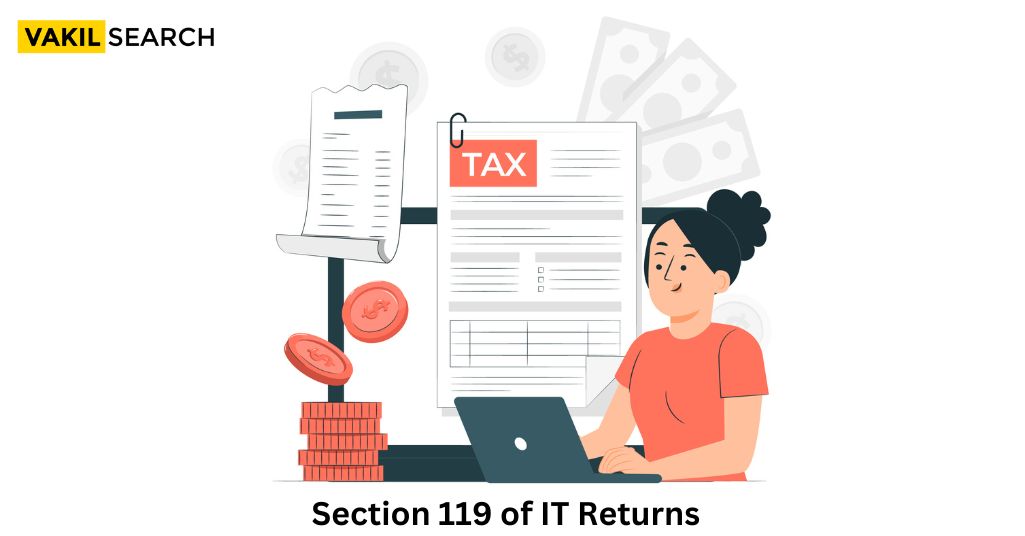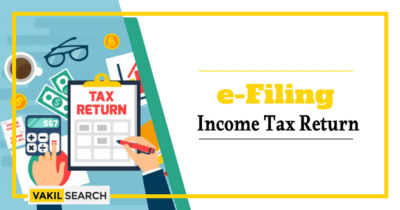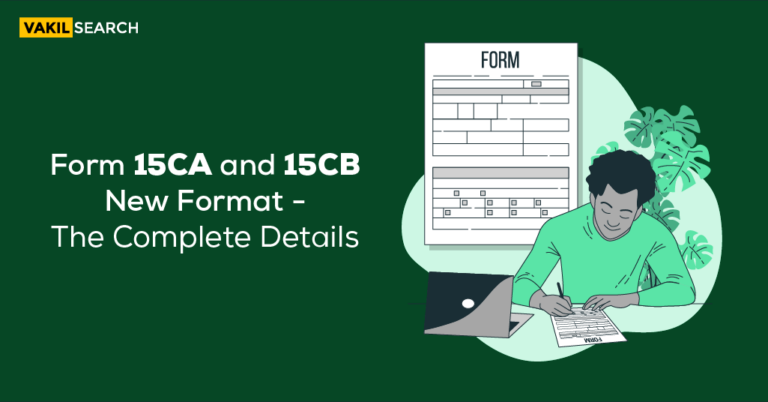The blog takes the readers through to make them understand the process of IT returns and the pertinent delays associated with such returns. It also explains the rules formulated for taxpayers to be followed in case there is a delay in IT returns.
Do you know that filing Income tax within the stipulated time is a mandate in the Indian market as far as the taxpayers are concerned? However, IT returns need to be filed at the end of the day, failing which Indian citizens must pay a heavy penalty. But how do we know the due date for filing an IT return? Due dates are declared under section 119 of income tax regulations. If someone fails to pay income tax within the stipulated date, the taxpayer can’t claim the refund.
Section 119 – In Brief
Section 119 of the Income Tax Act confers authority upon the Central Board of Taxes (CBDT) to issue directives to lower-level tax authorities. Furthermore, under section 119(2)(b), CBDT is empowered to direct income tax authorities to accept claims for exemptions, deductions, refunds, and other reliefs even after the stipulated time limit has elapsed.
However, such allowances hinge on the condition that the taxpayer genuinely couldn’t submit the claim within the prescribed due date.
Simplifying the Process: Filing Under Section 119(2)(b)
When you receive a claim acceptance order, follow these steps to file a return under section 119(2)(b) through the income tax e-filing portal:
- Log in to your income tax e-filing portal.
- Navigate to the “e-file” tab and choose “Income tax returns” from the dropdown menu.
- Select the relevant assessment year and the applicable return.
- Opt for the filing type “Filing against notice/order.”
- Choose the filing section “139 read with section 119(2)(b).”
- Upload an XML file and complete your return by verifying it.
Key Highlights Under Sec 119(2)(b)
For your relief or claim to be granted under section 119(2)(b), certain additional criteria must be met alongside the ones mentioned earlier:
- The income of an individual should not be taxable in the hands of another person under the income tax act.
- Interest on refund claims will not be provided.
- The refund claim should stem from an excess of TDS, self-assessment tax, or advance tax and not for any other reason.
- After the application is received, authorities will conduct a thorough investigation to determine the legitimacy and reasonableness of the claim before granting approval.
What Do You Understand by the Term Stipulated Time for Processing It Return?
The stipulated time for submitting an IT return might be explained as the time limit prescribed by nodal authorities for submitting IT returns for an individual taxpayer. Therefore, it is understood that, for the income tax of a particular financial year, a taxpayer has time till 31st March of the following year to go for submitting an IT return. More often than not, the year pertaining to tax calculation is referred to as the assessment year. Therefore, the thumb rule says that the taxpayer should go for an IT return by the end of the assessment year. For instance, if you are considering tax calculation during FY 2022 – 23, you must precisely submit your IT return by 31st March 2023.
What Is TDS, and Why Is It Applicable?
TDS remains to be tax deducted at the source, and this amount varies in accordance with the taxpayer’s income. Therefore, a deduction can happen on any large payment given to the taxpayer by any third party. However, experts reveal that sometimes taxpayers are unaware of TDS deductions. Industry experts related to Income tax calculator on a large scale reveal that TDS needs to be adjusted while filing IT returns within the year of assessment.
Why Does a Delay Happen in Filing an It Return?
Delay in submitting IT returns can happen in case a taxpayer does not take any heed to the declared dates for submission. However, it is important to note that Section 119(2)(b) can provide relief for genuine cases of delay, if applicable. Circular number 09/2015, dated 9th June 2015, can explain the necessary causes for delay in IT return and how the process can be reoriented in favor of the taxpayer.
Who can accept and reject applications?
Under Section 119(2)(b) of the Income Tax Act, 1961, the authority responsible for accepting or rejecting applications for condonation of delay in claims or applications is the Central Board of Direct Taxes (CBDT). The CBDT is empowered to authorize any income tax authority to make such decisions.
What is the Time Limit for accepting claims?
Section 119 of the Income Tax Act permits the CBDT to authorize income tax authorities to admit applications or claims for deductions, exemptions, refunds, or other reliefs even after the expiry of the prescribed time limit.
The critical factor in this process is the consideration of genuine hardship faced by the taxpayer more than any prescribed time limit for accepting claims.
What Is the Scope of Section 119(2)(B) In Filing an It Return?
It is interesting to note that the scope of Section 119 (2)(b) is huge. Section 119(2)(b) of the income tax act 1961 empowers the Central Board Of Direct Taxes, Government Of India (CBDT), to authorise any income-tax authority to process the income tax return file even after the due date is over.
Take control of your finances – use our Online Tax Calculator for precise tax estimations.
This particular section of Income Tax, as stated, takes into consideration the following:
- IT exemption, if applicable, as per the taxpayer’s income bracket under consideration.
- Tax deduction as applicable depending on the annual income of the taxpayer
- Tax refund, if any, depending on the TDS deducted within the assessment year
- If any other relief could be provided, in favor of the taxpayer, beyond the due date for return.
It is important to note that, vide circular No. 09/2015 dated 09-06-2015, CBDT had already issued instructions. Instructions have been given to the concerned authorities to address the condonation of IT returns on a delayed schedule. Therefore, it is clear that any tax refund claims need to be addressed through section 119(2)(b) of income tax.
Does the Circular Contain Comprehensive Guidelines Relate to Its Return Submission?
Industry experts reveal that the circular contains exclusive guidelines to make the taxpayer understand the need for filing an IT return within a time framework.
Conditions under which considerations are being made remain to be clear, and this includes:
- Acceptance or rejection of an IT return, including proper claim or refund related to tax deduction at any given point of time. However, any claim related to tax refunds should be made with respect to the concerned monetary limits as applicable in the given context.
At the same time, experts reveal that none of the authorities shall consider applications pertaining to IT return beyond a stipulated time limit of six years. This time limit is calculated from the due date for IT return submission. A condonation application should be settled within six months calculated from the submission date, and the concerned authorities should notify the taxpayer accordingly.
Conclusion:
Any taxpayer should file an IT return within the due date as declared by the government authorities. However, in case of a delay, in IT return, relevant laws as mentioned above shall be applicable as stated by the nodal authorities.
On the other hand, your IT return needs to be electronically verified and processed at the concerned authority’s end. It is important to remember that the earlier a taxpayer files the IT return, the sooner the refund is processed. However, it is important to note that the refund amount calculated is as per the eligibility of the concerned taxpayer. Experts from the field of income tax warn taxpayers that a delayed filing of IT returns can cause heavy penalties in the long run.
On the other hand, a delay in IT returns: https://www.incometax.gov.in/iec/foportal/ can happen at any time, and the taxpayer remains largely responsible for the same. A delay in filing an IT return beyond six years from the due date can put the taxpayer behind bars. At the same time, it may cause a heavy penalty as well.
FAQs
Who has the authority to approve the condonation request under Section 119?
The Central Board of Direct Taxes (CBDT) has the authority to approve condonation request under Section 119.
Under what circumstances can a taxpayer apply for condonation of delay?
A taxpayer can apply for condonation of delay if they have missed the deadline for filing their income tax returns or any other application or claim under the Income Tax Act due to genuine hardship.
What are the consequences if condonation of delay under Section 119 is not approved?
If condonation of delay under Section 119 is not approved, the taxpayer may have to pay late filing fees, interest and penalties.
How is Section 119 different from other sections in the Income Tax Act?
Section 119 provides relaxation to taxpayers in certain circumstances, such as condonation of delay, waiver or reduction of interest and relaxation for claiming deductions.
Are there any penalties associated with late filing if condonation under Section 119 is not sought?
Yes, there are penalties associated with late filing if condonation under Section 119 is not sought.
What is the role of the Central Board of Direct Taxes (CBDT) in relation to Section 119?
The CBDT is responsible for authorizing any income-tax authority to admit an application or claim for the deduction, exemption, refund or any other relief under Section 119.
What documents are needed when filing a condonation request under Section 119?
The documents needed when filing a condonation request under Section 119 include proof of genuine hardship and any other relevant documents. To know more reach out to the CAs at Vakilsearch right away!
What impact does condonation under Section 119 have on interest and penalties imposed due to delay?
Condonation under Section 119 may reduce or waive the interest and penalties imposed due to delay.
Are there any specific case laws or judgements that have shaped the interpretation of Section 119?
Yes, there are specific case laws and judgments that have shaped the interpretation of Section 119, such the case of K C Antony v. Principal Commissioner wherein the Kerala High Court held that Section 119(2)(b) of the Income-tax Act, 1961 does not impose any limitation for the purpose of filing an application for condonation of delay.
Also, Read:










